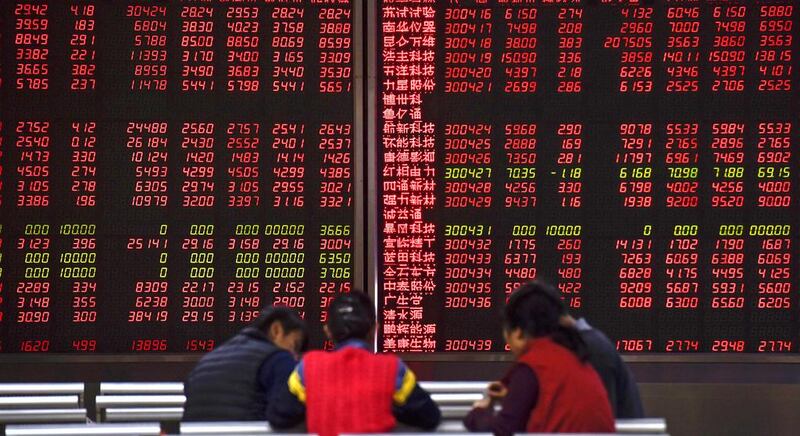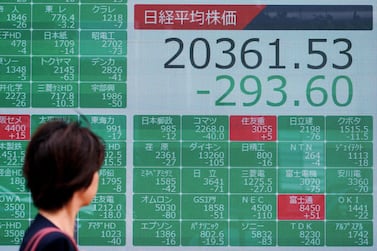China's threat to impose counter-measures in retaliation for the latest US tariffs knocked stocks on Thursday, checking earlier attempts to recover from a rout sparked by fears of a world recession.
Wall Street futures erased earlier losses and were trading in positive territory, but the relentless drop in global bond yields raised fears the world economy was hurtling towards recession and weighed on global equities.
Expectations the US Federal Reserve and other central banks would respond robustly to the recession warning helped world stocks to steady earlier. But that recovery was cut short by the latest rhetoric from Beijing, Reuters reported.
"The only game in town is the central banks, hence the bond markets are rallying," said Peter Schaffrik, global macro strategist at RBC Capital Markets.
"We have regional bonfires in Hong Kong, Argentina, Japan against South Korea, and none of these are going away easily; each and every one is not necessarily strong enough to cause trouble."
Recession fears grew on Wednesday after yields on 10-year Treasury bonds dropped to less than two-year rates for the first time in 12 years, when the same yield curve inversion presaged the 2008 recession, the report said.
The curve has inverted before every recession in the past 50 years and sent a false signal just once.
The latest inversion has since reversed, albeit marginally, and yields on 30-year Treasuries rose off the record 1.965 per cent low reached in Asian trade. But they are still down 60 basis points in just 12 sessions.
"We have seen stocks trading very poorly as a result of the yield curve inversion, so that will be flashing some additional warning lights for the Fed that they have to do more," said Andrea Iannelli, investment director at Fidelity International.
"The only question is, can the Fed out-dove the market? At the very least they will have to match market expectations in the short term."
The Chinese comments sent a pan-European equity index down more than half a percent and markets in London and Frankfurt lost over 1 per cent. Earlier, Asian shares fell 0.5 per cent. Japan's Nikkei shed 1.2 per cent as a yen surge hit the export-heavy market.
German 30-year yields are below minus 0.2 per cent for the first time. Ten-year yields touched a record low of minus 0.67 per cent.
The growth worries come amid economic stress in Argentina and some other emerging markets and trade tensions that show no sign of abating.
Major companies in Germany including Daimler, BASF, Continental, Henkel, Deutsche Lufthansa and Metro have cut their forecasts on recessions fears. Many more have drawn bleak pictures of their prospects, Bloomberg reported.
The development came after a report showed a quarterly contraction of the economy, the second in the past year. Surveys for the third quarter have hinted at a further deterioration, with a manufacturing gauge firmly pointing to shrinking output.
“Earnings are shrinking and entire sectors are in deep crisis,” said Andreas Lipkow, a strategist at Comdirect Bank. “The current effects of the trade conflict between the US and China have noticeably arrived at German export companies.”







